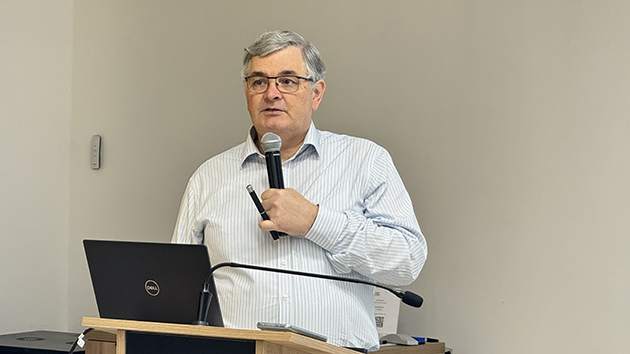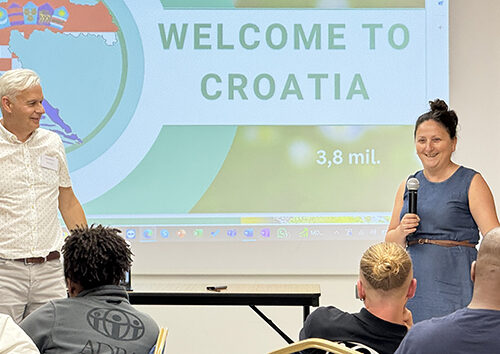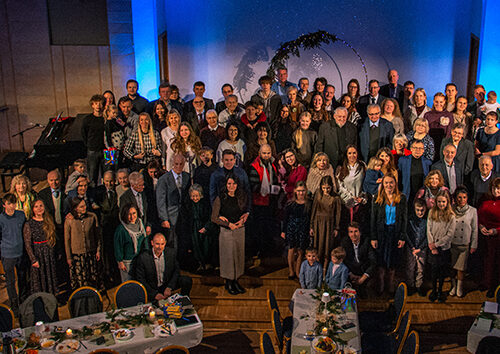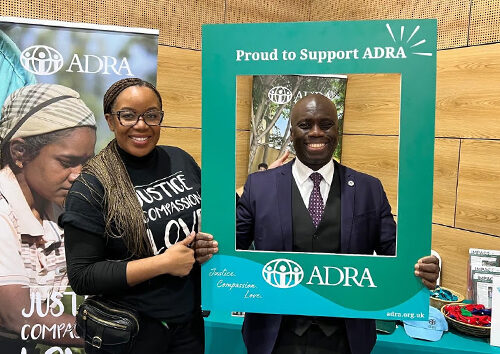26 June | Zagreb, Croatia [Corina Wagner with tedNEWS]
From 19 to 26 June 2024, the Adventist Development and Relief Agency (ADRA) Programme and Country Directors convened in Zagreb, Croatia, for the European ADRA Forum. This gathering provided an opportunity for leaders across Europe to discuss joint strategies, global trends, and the future of humanitarian work in the region and beyond. Leaders from ADRA International also attended, offering insights from a global perspective.
João Martins, ADRA Europe Director, highlighted the relevance of the Forum, stating, “Bringing European ADRA leaders together to discuss the future of the agency is crucial for gathering the necessary insights for ADRA to thrive.” Martins added that witnessing the active engagement of leaders was inspiring, “assuring us that ADRA will continue to serve those in need with professionalism and compassion.”

Strategic Framework and Teamwork
One of the key discussions focused on ADRA’s Strategic Framework for 2023-2028. Zivayi Nengomasha, Chief Collective Impact Officer at ADRA International, led the conversation, emphasising the importance of bridging departmental gaps and improving teamwork to ensure every office contributes to the global strategy. The new global strategy was compared and aligned with the existing European Strategy to facilitate joint data collection, intentionality, and teamwork.
Better Emergency Management
“The worldwide ADRA network engages in an average of 2.5 new national emergency projects per week,” shared Michael Peach, Senior Coordinator for Network Emergency Preparedness at ADRA International. Consequently, attendees at the Forum focused on strengthening local emergency response capabilities and building volunteer and church capacities across Europe.
It was noted that, in recent years, ADRA has trained over 530 emergency response team members worldwide. Reflecting its commitment to handle crises better and support long-term recovery, ADRA is also working on combining development skills with disaster response and peacebuilding. Additionally, over the coming months, ADRA will launch new tools to support the mental health and psychosocial well-being of Emergency Response Workers (ERWs).
As ADRA Europe aims to be more prepared for emergencies, helping communities recover faster and more sustainably, sharing best practices is essential. During the Forum, Valentina Sturzu Cozorici, ADRA Romania Programme Director, shared insights from their experience of rapid growth following the start of the Ukraine crisis, which was very helpful to other offices experiencing similar growth.
Collaboration Between ADRA and the Church
A key discussion focused on the collaboration between ADRA and local churches. Daniel Duda, President of the Trans-European Division (TED) of Seventh-day Adventist, emphasised that “We are called to live a life reflecting God’s kingdom and using the gifts He has given us.” Basing his message on Matthew 24 and 25, he stated that this holy call embraces everyone, “not just pastors, to live out their faith and compassion in their daily vocations.”

Global Challenges and Adapting to New Trends
In a timely presentation, Rilli Lappalainen, President of the European Confederation of NGOs working on sustainable development and international cooperation (CONCORD), underscored the urgency of addressing planetary boundaries and climate change. Lappalainen’s insights on climate change impacts, state-based conflicts, and shifts in funding priorities sparked deep reflections from all attendees. Other presentations on challenges and new trends, including changes in EU humanitarian aid policies, digitalisation, and gender equality, were very helpful to all leaders.
Thomas Petracek, ADRA Europe Head of Programmes, reflected on these presentations and the impact of the Forum as a whole. “Working in programmes means searching for solutions to help underprivileged people live a life in dignity and with perspective. In times of increasing crisis, we need success stories… The exchange between colleagues is essential to learn from each other, discuss challenges, and strengthen our partnership.”
Recognising the privilege of working in the aid and development sector, Petracek concluded, “We impact thousands of vulnerable families and individuals worldwide through Health, Education, Livelihood, and Emergency response. This is a privilege we humbly recognise, motivating us to work on solutions for a better and peaceful future.”
[Photos: Luis Herranz, ADRA Europe]
Featured image: Slavica Marčeta (ADRA Croatia) welcomes fellow directors to Croatia with fun facts about the country, is joined by Thomas Petracek, Head of Programs, ADRA Europe.



